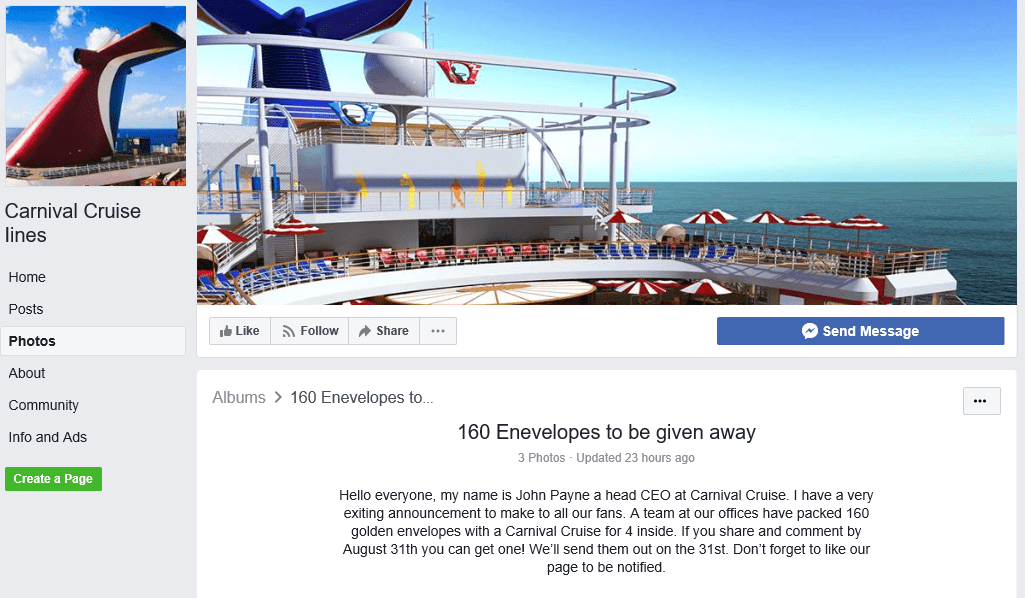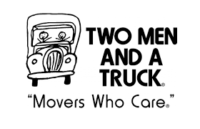You’ve seen the contests – a well-known company is offering as thanks to their customers Ten Free trips to any location in the world. All you have to do is “like” their post, comment where you would like to go if you won, and Share that post with your friends. Sound easy? Of course. Legitimate? Hardly. Older examples included Bill Gates giving his fortune away 100 dollars at a time to people who liked the Microsoft page. Two examples recently hit the rounds – a free dozen doughnuts from Krispy Kreme just for liking and sharing; one hundred and sixty free cruises on Carnival Cruise Lines just for liking and sharing.
This practice is called “Like Farming”, where the objective of the Social Media page is to gain as much popularity as possible in order to reach as many people as possible due to its popularity. Once it is popular enough, the contest suddenly may end, and the page is changed to something else, and usually not a good change – at this point, the page may be used to solicit fake merchandise, inappropriate sites, or introduce spyware / malware to users who agree to “log in and share” their account information in order to “play” a game. This is highly prohibited by Social Media platforms such as Facebook; however, many of these fake pages gain popularity almost in a viral fashion and can get 60,000 to 70,000 likes in a single day.
By the way, a new twist with the free doughnuts or the free cruise. Simply liking, commenting, and sharing isn’t sufficient to get your “free” prize – now, you have to click a link to “validate” your entry – do NOT click on that link! Why would Carnival Cruise Line have to tie to a Housing and Urban Development website in Utah? Sound fishy? It most likely would lead to a malware site – this fake page doesn’t even wait to get popular enough to change to a malware page.
Some things to ask yourself before falling for these prize scams. First, is the grammar in the message slightly “off”? In the Carnival Cruise scam, the picture shows the (fake) CEO who introduces himself as “a head CEO”. In the Krispy Kreme scam, it promises a “free box of dozen donuts”. Second, does it ask you to like / comment / share in order to win? Third, does it ask you to click a link to validate your entry? Finally, does it just seem too easy to win – wouldn’t the business go bankrupt if they gave that much away for so little in return?
If it’s too easy to win, there’s likely NO prize. Keep that in mind as you see your well-intentioned friends sharing with you.
——-
Christopher Grounds, Ph.D., CIPA, is a Certified Identity Protection Advisor with the Identity Management Institute, and is the co-owner of Benefits4Success with Joni Grounds, whose mission is to grow and protect individuals and small businesses. He can be reached at chris@benefits4success.com .








